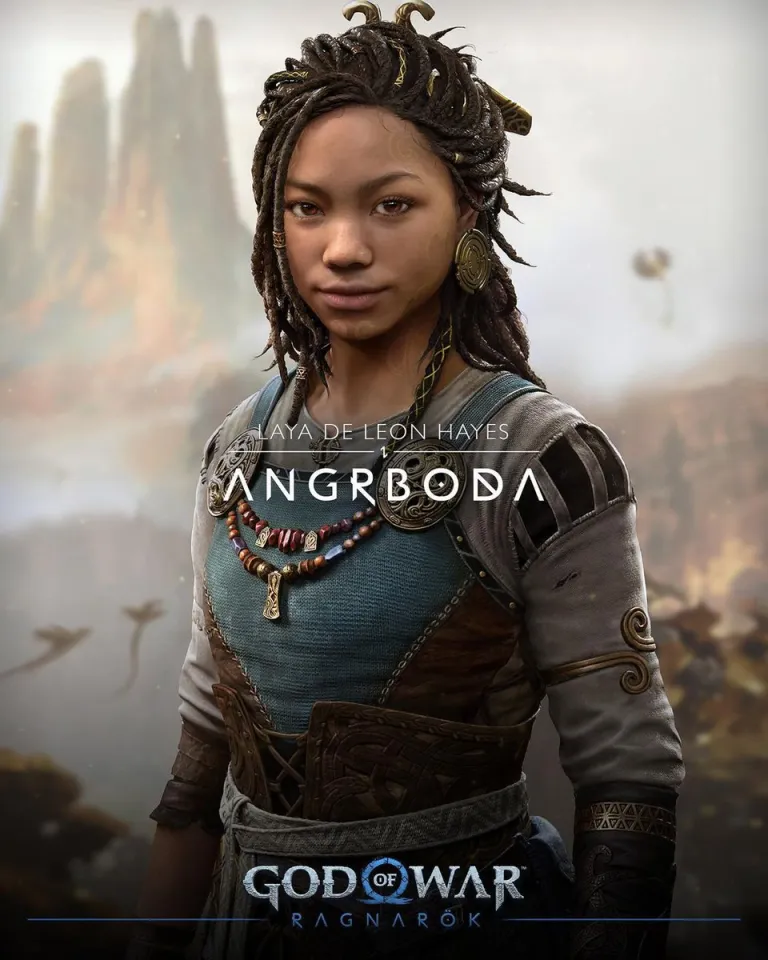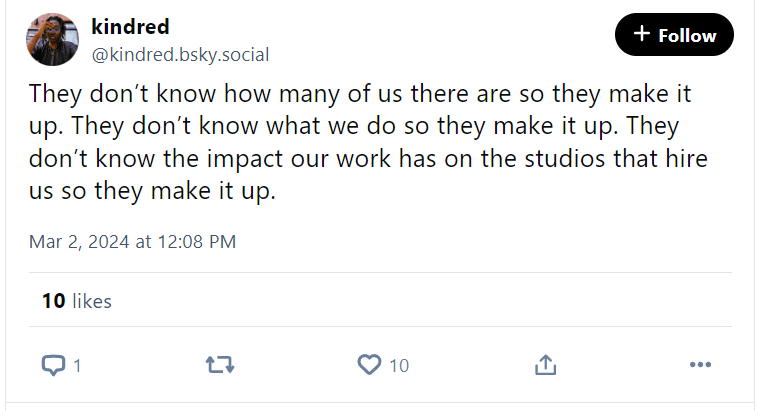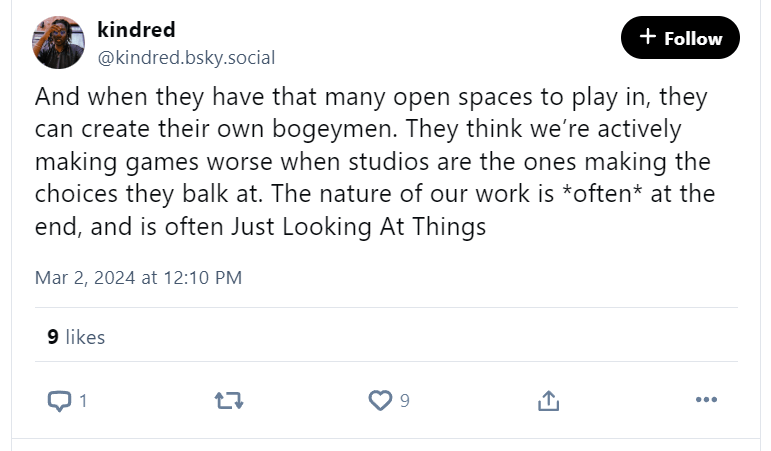
Kim Belair via GDC YouTube
Sweet Baby Inc. CEO and co-founder Kim Belair previously compared white male gamers to picky gamers as she explained how her company gained influence on major video game developers during a 2019 Game Developers Conference.

Kim Belair via GDC YouTube
At the beginning of her presentation, Belair made it abundantly clear what her and her company’s goals are, “We do narrative development in games and kind of beyond and we try to bring inclusion, diversity, and new ideas kind of to the industry.”
Later in her presentation she also confirmed the company acts as sensitivity readers for video games saying, “We need sensitivity readers. We need risk assessment. And these are like, again, important services that I literally like list on every PDF that I send out to be like, ‘Hey, I can do risk assessment and sensitivity reading.’”
About two-thirds through the 30 minute presentation Belair compared white male gamers to picky babies saying, “I think in our industry and in so many creative industries — if you want to look at film, and, television and any art form — we start treating our core demographics as a fixed and static value something that does not want to change and something that is locked in place.”
“So despite the changing face of audiences, despite the changing face of conferences like this one, we still look at our core demographics and say, ‘Okay, they’re white, cis, hetero males.’ And we cater almost exclusively to them. And the problem is that we don’t just cater to them like, ‘You know, here’s something that we think you’ll enjoy.’ We cater to them like a picky baby.”
She elaborated, “We feed them the same thing that we know that they love and we keep on feeding it. We’re like, ‘Here you go. We know you love it. Eat this. Eat this. Eat this.’ So then when they get anything else they react as a picky baby would, which would be like, ‘Oh! No thank you. I do not want this.’ And we’ve actually done this so long that what we’re doing is creating an entire nation of picky babies and they make us scared to deviate from what we actually want to do. Just in case these picky babies don’t want to play our games.”

Angrboda in God of War: Ragnarok (2022), Sony Santa Monica
Interestingly, while Belair’s entire discussion was about how she can add black characters to video games under the guise of representation, she revealed she actually advised one company to remove a Frenchman.
She revealed, “I once worked on a project where they had an all-white cast where they expressed their desire, ‘Okay, we need to mix it up a bit. How about this character’s like stereotypically French.’ So they have a beret and they have like a striped shirt. And I was like, ‘Okay, if you need to do that, can we at least make them a person of color?’ And they said, ‘Oh no, that would be weird. They’re already French.’”
“So I want to do better than this,” she asserted.

A screenshot from Usual June (2025), Finji
Belair would then double down on her “picky baby” metaphor, “I do like to image that when we look at white guys and there’s several of you here. I think when we look at you we say, ‘Okay, you can’t possibly enjoy this.’ But I think they want also and maybe you want also to experience new and different stories. I think we need to step out of this rule that like white men can enjoy fantasy worlds, aliens, sci-fi, monsters, anything so long as its through a lens that looks exactly like them.”
“Because if that’s the kind of person that we’re always going to cater to, you’re never going to innovate, you’re never going to change things, you’re going to keep feeding the picky baby,” she continued. “And we cannot continue to try to create art under a system that is going to bar innovation for fear of a picky baby throwing a tantrum.”
A little bit later she said, “I don’t think it’s pie in the sky thinking to go like, ‘Hey, maybe we can invite white dudes to play as other people and experience different things through someone else’s eyes.’ And if they don’t like it, we have to start thinking, ‘We’re not losing. They’re losing, and we’re losing because we’re going to let them stand in the way of our progress and our innovation.’”

A screenshot from Dungeons & Dragons: Dark Alliance (2021), Tuque Games
Belair then shared how she and Sweet Baby Inc. had already begun changing the industry to fit her vision, “If you’re creative working in AAA, which I did for many years, put this stuff up to your higher-ups. And if they don’t see the value and what you’re asking for when you ask for consultants, when you ask for research, go have a coffee with your marketing team and just terrify them with the possibility of what’s going to happen if they don’t give you what you want.”
“Because they have to consider– I say that out loud as a joke, but it’s actually very, very true because if you start to consider the people who are player and audience facing and you have to deal with mitigating harm and with keeping the sentiment around their game and their project positive, there’s like a genuine value that you could impress upon them both ethically and financially. You could say this is important,” she said.
Belair elaborated, “It’s also a valid discussion to have because if you’re working with a thin narrative budget and you work in AAA, I think you’ll be pleasantly surprised or dismayed by the amount of money that marketing can give you.”
As she got to the end of her presentation, Belair would admit what she’s doing is injecting wokeness into the video game industry, “None of what we’re doing is about ticking boxes or about a veneer of wokeness. We actually have to care about making this stuff.”

A screenshot from Alan Wake II (2023), Remedy Entertainment
Ironically, all of Belair’s comments contradict recent comments made by Chris Kindred on her now deleted BlueSky account where she claimed the company was not doing any of this and had no influence on major studios.
Kindred posted on the social media platform, “Trolling their forums and chats and realizing that they don’t care about sweet baby at all. Sweet baby is just the most visible and the most vulnerable. They think we’re some superfirm funded by blackrock receiving ESG funding and tasked by Some Entity to hold studios hostage.”

Chris Kindred BlueSky
Kindred continued, “They don’t know how many of us there are so they make it up. They don’t know what we do so they make it up. They don’t know the impact our work has on the studios that hire us so they make it up.”

Chris Kindred BlueSky
“And when they have that many open spaces to play in, they can create their own bogeymen. They think we’re actively making games worse when studios are the ones making the choices they balk at. The nature of our work is *often* at the end, and is often Just Looking At Things,” Kindred wrote.

Chris Kindred BlueSky
“As a unit, we have no power toward any of the clients we work with. They’re mad at market conditions, they’re mad at studio decisions, they’re mad at the world changing away from their fascist beliefs,” Kindred opined. “They just need is a punching bag because they know AAA studios will sue them into the earth.”

Chris Kindred BlueSky
Kindred added, “They think they’re Doing Activism by targeting smaller, more visible organizations in hopes that AAA studios will…get scared? They don’t know. They don’t have an end goal. Just unmitigated vitriol.”
The Sweet Baby Inc. employee concluded, “Idk man shit was fine after the first day but the Zionists from earlier this week wore me down and I am Entering A Place.”

Chris Kindred BlueSky
What do you make of Belair’s comments?




